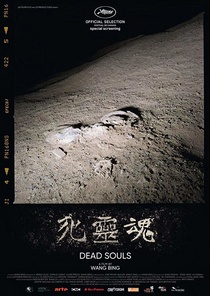Egy kínai munkatábor – ahová az 1950-es és 1960-as években, Mao idején állítólagos jobboldaliakat küldtek átnevelésre – idősödő túlélőivel készített interjúk.
Várólistára tette 5
Népszerű idézetek
– I can tell you a story. There was a woman from the North-East who must have worked in Xi'an. She arrived at the camp with her 3 children. That was before we came to Gaotai-Mingshui. When we realized why she had come, nobody dared talk to her. „I've come to see my husband, where is he?” she said. We all avoided answering her because he was dead. We told her to ask one of the managers. We didn't know the director but there was a manager by the name of Yan. A large chap. In the end, he said to her: „I have to tell you, you husband is dead.” "Where is he buried? I couldn't see him alive, I must see his remains." How could we show her? Nobody knew where he was. The wolves might have eaten him or God knows who else…Now that she'd lost her husband, and as she was there with her packages, she decided to stay. „Look after my children, I'm going to stay here. I won't cost you anything”, she said. She had bought many things and she began praying for her dead husband. She made offerings of incense and other things. She dressed in the rags of an old sheet and cried for her husband. Then, she said again: „I won't leave.” Her 3 children were gathered around her, and she said to them: „Your father has died and your mother is not worthy of you. You will stay here. Your destiny will decide the rest.” Then, she ran towards a pole, there were no trees! And she hung herself. Luckily, we were able to prevent the worst. After she'd been saved, she stayed for 3 more days. She had a train ticket but she wouldn't leave. We all tried to convince her. "Leave here quickly, this isn't a place for you. You have enough worries with your three kids. Look at us, a gang of devils! Black hands, black faces, hairy and ragged.
– At that time, Zhou Zhinan worked in the sheepfold. One day, he ate a lamb's placenta. And as they lacked water, he ate it raw, without washing it. They were no longer human.
– So it became normal to live alongside death?
– It was part of our daily lives. A sad reality. A reality that aroused neither sorrow nor surprise. An oil lamp threatening to go out for which you have no fuel to revive it.
– In Taizisi, people had started eating human flesh. People ate the dead. When people died, we'd go and bury them. In the evening, people went and cut off the flesh.
– Did you bury the dead?
– No, I never did.
– But I know that…when they buried a dead person, they opened it up to take out the innards and after making a fire, they grilled them and ate them. I know that.
– Many men died, and in awful conditions. There was nothing extraordinary about death. Imagine, as we lacked water, we drank our own urine. We drank our own urine. When I wanted to pee, I didn't dare let it all out. I peed half of it into a bottle that I kept. If I was thirsty, I lifted myself up by tugging on the cord, and I drank a little. I drank my urine. I wasn't alone, everyone did it.
– When did most people die?
– At daybreak. Around three o'clock in the morning. The coldest time of day, before sunrise. That's when many people died. Always at that same time of day. I was surrounded by dead people.
– I knew another one, too. The one who ate human flesh. Zhang Weizuo. He is still alive. What's the name of the guy who was eaten? I remember him very clearly but I can't remember his name. He spent all his time in the sickbay trying to care for the prisoners. When he died, Zhang Weizuo and some others removed his flesh to eat it. Deng Lizi! Doctor Deng. He was from Henan.
– Were the cadres in good health?
– There weren't many of them. They were already less violent with us. Before, they treated us like criminals, they shouted at us and insulted us. At the end, they didn't have the strength to shout. Nobody was scared anymore. We took books by Marx, Lenin and Mao and made bonfires together. We boiled water so that we could drink.















